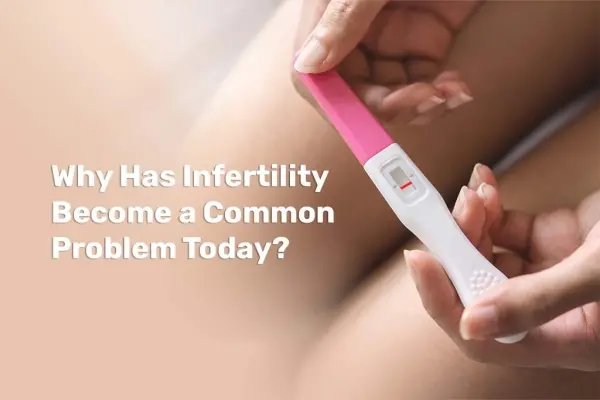How Common Is Infertility?
In Females: The NFHS-5 found that 29.3% of women in India aged 25-49 had a low ovarian reserve. This means that they had a reduced number of eggs, which can make it more difficult to conceive.
The NFHS-5 also found significant regional variations in the prevalence of low ovarian reserve. The highest prevalence was found in the northeastern states of India, with 36.3% of women in Assam and 35.7% of women in Meghalaya having a low ovarian reserve. The lowest prevalence was found in the southern states of India, with 22.8% of women in Kerala and 23.2% of women in Tamil Nadu.
In Males: The NFHS-5 found that the median sperm count in India was 40 million sperm per millilitre of semen. This is lower than the World Health Organization’s (WHO) reference range of 15-259 million sperm per millilitre.
The NFHS-5 also found that there were significant regional variations in sperm count. The highest sperm counts were found in the northeastern states of India, with a median sperm count of 50 million sperm per millilitre in Assam and 47 million sperm per millilitre in Meghalaya. The lowest sperm counts were found in the southern states of India, with a median sperm count of 35 million sperm per millilitre in Kerala and 36 million sperm per millilitre in Tamil Nadu.
India’s total fertility rate decreased from 3.96 in 1991 to 2.0 in 2023, from 1.93 to 1.19 in China, and from 2.05 to 1.66 in the USA over the same time.
What Are the Causes of Increased Infertility?
The following are the main causes of infertility:
- Age and health issues: Couples who are younger than 30 years and healthy are more likely to conceive within 2 to 3 months of trying. After 30 years, a couple’s chances of pregnancy drop. Older partners tend to face health issues, and the treatment for these issues or the disease itself can cause infertility or reduce the chances of conceiving.
- Late marriages: Previously, women used to get married early, i.e., at 21 years of age. Now, this age has extended to 26 or 27 or even older. Many couples do not wish to get married or start a family early. They wait for their education to be completed or for their career to be established before they begin working. With older partners, the chances of infertility or issues with pregnancy are common.
- Stressful lifestyle: Stress due to various reasons can affect fertility in both partners. Depression and anxiety have become very common in the population. This could be due to personal and professional reasons behind a stressful lifestyle. Studies have shown that stressed women or facing anxiety and depression are more likely to face challenges conceiving.
- Unhealthy eating habits: Eating junk food has become common. This has increased obesity rates. Increased weight results in hormonal imbalance, ultimately causing infertility.
- Smoking and alcohol consumption: Certain lifestyle habits, such as alcohol consumption and smoking, can affect male fertility. Drinking and smoking affect sperm count and quality.
- Harmful chemicals: The environment has many harmful chemicals, and exposure to them increases the risk of infertility. These chemicals include endocrine-disrupting chemicals or phthalates found in plastic products and certain cosmetics that contribute to infertility in couples.
- Longer than usual menstrual cycle (35 days or more)
- Shorter than usual menstrual cycle (less than 21 days)
- Irregular menstrual cycle
- Absent menstrual cycle
- Issues with sexual function (reduced desire, issue in the ejaculate volume, difficulty in having an erection or maintaining it)
- Swelling, pain or the presence of a lump in the testicular area
- Abnormal breast growth
- Lack of facial or body hair
- Other signs of hormonal imbalance
- Lower sperm count
What Are the Signs of Male and Female Infertility?
The signs of infertility in females are as follows:
The signs of infertility in males are as follows:
How Can We Reduce the Chances Of Infertility?
The treatment and prevention of infertility depend on the cause of infertility. In most cases, lifestyle changes help increase your chances of conceiving. Getting married and planning a family early, avoiding stress and unhealthy eating habits, and engaging in regular exercise, can make couples embrace parenthood early. It is also important to treat any underlying disease that could otherwise affect your fertility. Sometimes, your doctor may also prescribe medications to improve fertility.
Conclusion
If you or your partner experience any of the above symptoms, you must visit a doctor to deal with the issue. It is critical to see your doctor if you are facing difficulty conceiving. Sometimes simple lifestyle changes can help you conceive. However, awareness of the same is a must!

